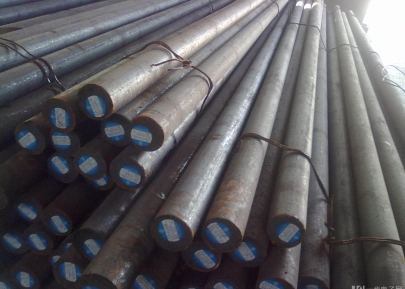Unlocking the Secrets of Copper Blockers: Are They the Key to Better Health?
Copper is an essential trace mineral that plays a critical role in various biological functions. However, the balance of copper in our bodies can be a double-edged sword. For some, an excess or imbalance might lead to health issues. This is where copper blockers come into the picture. Could these substances be the answer to maintaining optimal health? In this article, we'll delve into the science of copper blockers, their uses, benefits, and potential downsides.
The Role of Copper in the Body
Copper is involved in numerous physiological processes, such as:
- Formation of red blood cells
- Absorption of iron
- Maintaining healthy bones and connective tissues
- Supporting the immune system
- Producing energy
Although necessary, too much copper can lead to toxicity. Conditions such as Wilson's disease illustrate the importance of balance because they can cause copper to accumulate in the body.
What Are Copper Blockers?
Copper blockers are compounds that inhibit the absorption of copper in the gastrointestinal tract. For individuals who may be at risk of copper overload, these blockers can be a valuable tool. Common sources include:
- Zinc supplements
- Phytates from grains and legumes
- Compounds found in certain medications
This type of intervention is often recommended for those diagnosed with conditions like Wilson's disease.
How Do Copper Blockers Work?
The mechanism behind copper blockers revolves around competition. For instance, when zinc is taken as a supplement, it competes with copper for absorption sites in the intestines. This connection can help reduce the amount of copper entering the bloodstream.
Benefits of Copper Blockers
Utilizing copper blockers can provide several advantages:
- Reduction of Copper Levels: For those with excess copper, these blockers can be pivotal in managing levels.
- Improved Symptoms of Copper Toxicity: Symptoms such as fatigue, depression, and liver issues may improve.
- Dietary Balance: They can help in achieving a better balance of essential minerals.
Potential Downsides of Copper Blockers
However, it’s essential to consider the risks associated with copper blockers:
- Nutrient Depletion: Long-term use may lead to diminished copper levels, essential for vital functions.
- Interaction with Medications: Always consult a healthcare provider to avoid adverse effects.
- Over-restriction: Some individuals may inadvertently lower their copper levels too much, necessitating careful monitoring.
Sources of Copper and Blockers in Diet
Many foods are rich in copper, including:
- Oysters
- Seeds and nuts
- Whole grains
- Dark chocolate
- Legumes
Conversely, some foods can enhance the effects of copper blockers, such as:
- High-zinc foods: meat, eggs, and dairy products
- Phytate-rich foods: legume-based products.
Copper Bars For Sale: A Unique Source
For those looking to explore copper for its potential health benefits or beauty purposes, copper bars are available for sale in various shops. These bars are often marketed as supplements for various uses, from enhancing cooking to health-related applications.
How to Clean Silver Plated Copper
Maintaining the appearance of silver-plated copper items can require care:
- Use a mild soap and warm water solution to clean the surface.
- For tarnished areas, apply a paste of baking soda and water gently.
- Rinse and dry immediately to prevent water spots.
Table of Copper Blockers and Common Sources
| Type | Examples | Sources |
|---|---|---|
| Zinc | Zinc sulfate | Meat, shellfish |
| Phytate | Phytic acid | Whole grains, legumes |
| Dietary Fiber | Fiber-rich foods | Fruits, vegetables |
Should You Consider Copper Blockers?
Before making any changes, it's best to analyze your dietary copper levels, potential health conditions, and consult healthcare professionals.
Key Points to Remember
- Copper is essential, but balance is crucial.
- Copper blockers can help those at risk of copper toxicity.
- Consider potential downsides, like nutrient deficiencies.
- Consult a healthcare professional before significant dietary changes.
FAQs About Copper Blockers
1. Are copper blockers safe to use?
Yes, but they should be used under medical supervision to avoid nutrient imbalances.
2. What are the signs of copper toxicity?
Symptoms include abdominal pain, nausea, and neurological issues.
3. Can I get enough copper without supplements?
Most people get enough copper through a balanced diet. Supplements should only be considered if deemed necessary by a healthcare provider.
Conclusion
Copper blockers offer intriguing solutions for those at risk of copper overload. While they do present numerous benefits, it is equally essential to be aware of their downsides. Striking a healthy balance of copper intake, understanding individual needs, and consulting healthcare professionals can help in making well-informed decisions. Whether choosing dietary adjustments or considering supplements, always prioritize your health.



